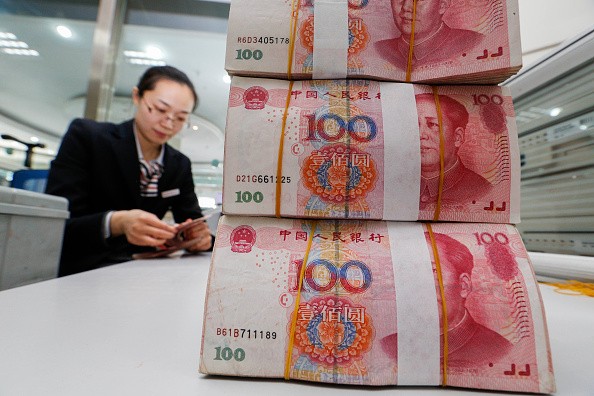A new rule introduced by China's financial regulators, aimed at restricting the amount of capital flowing out of the country, has temporarily reversed the decline of the renminbi's value.
But analysts are concerned over reports that the Chinese government is also considering on imposing restrictions on companies as well, The New York Times reported.
The effect of the new rule was more evident in Hong Kong where offshore renminbi is freely traded by investors. The offshore renminbi rose 2.5 percent after the two-day rally, reaching 6.7853 against the dollar on Thursday, Jan. 5.
The new capital controls and concerns about more measures have put pressure on the renminbi in Hong Kong, which has already been in short supply.
For lenders and financial institutions that seek funding, the borrowing costs for offshore renminbi have increased on the interbank market.
On Jan. 5, the overnight deposit rate rose by as high as 100 percent while it was hovering between 1 percent and 3 percent in October and November.
According to some analysts, the abrupt changes in exchange rates and borrowing costs were orchestrated by Chinese authorities to relieve pressure on the renminbi and prevent speculation such short-sellers who bet on the decline of the currency with borrowed funds.
"Movements of this speed and magnitude have to be either official intervention or officially directed action by Beijing," Christopher Balding, an associate professor of finance at the Peking University HSBC School of Business in Shenzhen, told the NY Times.
"The purpose is to remove renminbi from offshore centers like Hong Kong, which had been continuing to be a factor placing downward pressure on the renminbi."
The People's Bank of China, however, denied that they were responsible for the movements in the offshore currency market or intervened in the offshore market in Hong Kong.
But some economists noted that the conditions in the offshore market were enough to trigger tight liquidity, even without the intervention of China's central bank.
"Liquidity had been tight since September, and the market had widely expected tight liquidity conditions to continue," Becky Liu, the head of China macro strategy at Standard Chartered Bank in Hong Kong, noted.




























